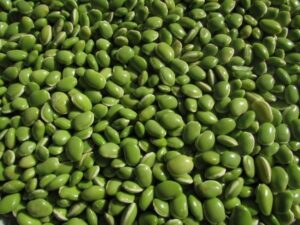Are salt and vinegar chips healthy, or are they just another snack in disguise? As more consumers turn towards healthier eating habits, the snacks we reach for come under increasing scrutiny. The tangy crunch of salt and vinegar chips may be tempting, but how do they stack up against our wellness goals? Let’s dig into the ingredients that make these chips so addictive and uncover whether they’re truly a guilt-free indulgence or simply a tasty trap. Your snacking choices matter—let’s explore this tantalizing topic together!
The rise of health-conscious consumers
In recent years, there has been a notable shift in consumer behavior. The rise of health-conscious consumers is reshaping the food landscape. People are becoming more aware of what they eat and how it impacts their overall well-being.
This growing awareness extends beyond just counting calories. Many seek out clean ingredients, natural flavors, and transparency from brands. With access to information at our fingertips, individuals are making informed choices about their diets.
Social media plays a big role in this trend as well. Platforms like Instagram and TikTok showcase healthier recipes and snack alternatives that inspire creativity in the kitchen.
As these consumers demand better options, companies are adapting to meet expectations. This evolution creates an exciting environment for healthier snacks but also raises questions about traditional favorites like salt and vinegar chips.
Understanding the ingredients in salt and vinegar chips
Salt and vinegar chips often catch the eye with their bold flavor and appealing crunch. But what exactly goes into these snacks?
The primary ingredients typically include potatoes, oil, salt, and vinegar powder. Potatoes are sliced thinly before frying to achieve that signature crispiness.
The seasoning is what sets these chips apart. Vinegar powder adds the tangy taste many love. However, it’s essential to check labels since some brands might use artificial flavoring instead of real vinegar.
Many commercial varieties also contain preservatives or additives to enhance shelf life. These can vary by brand and may not align with a health-conscious diet.
Understanding what’s in your favorite snack helps you make better choices while indulging in flavors you enjoy.
Potential health benefits of vinegar
Vinegar, particularly apple cider vinegar, has gained attention for its potential health benefits. Many people believe it can aid digestion. A small amount may help balance stomach acidity, making meals easier to digest.
Some studies suggest that vinegar could assist in regulating blood sugar levels. This might be beneficial for those looking to manage their energy spikes and dips throughout the day.
Additionally, vinegar is often praised for its antimicrobial properties. It’s thought to enhance gut health by supporting good bacteria.
Weight management is another area where vinegar shines in popular discussions. Some claim that incorporating it into diets can promote a feeling of fullness, potentially reducing overall calorie intake.
While these benefits are intriguing, they should be approached with cautious optimism. More research is needed to fully understand how effective vinegar truly is when integrated into daily routines.
The truth about sodium in processed foods
Sodium is a common ingredient in many processed foods, including snacks like salt and vinegar chips. It enhances flavor and acts as a preservative, but it comes with potential health concerns.
The average American consumes much more sodium than recommended. Health guidelines suggest limiting intake to about 2,300 milligrams per day. Yet, many snacks can easily push you close to or over that limit in just one serving.
High sodium consumption is linked to increased blood pressure and cardiovascular issues. While some sodium is necessary for bodily functions, the excess found in processed foods may be problematic.
Understanding where your sodium comes from helps make smarter choices. Reading labels becomes crucial when picking out snacks that align with your dietary goals.
Alternatives to traditional salt and vinegar chips
If you’re looking to satisfy that savory craving without the guilt, consider baked salt and vinegar chips. They offer a similar tangy flavor but with less fat and fewer calories.
Another option is homemade versions. Just slice some potatoes thinly, toss them in vinegar and bake until crispy. You get all the taste without any of the preservatives found in store-bought varieties.
For a healthier crunch, try popcorn seasoned with vinegar powder or nutritional yeast. It’s light yet flavorful, providing a satisfying snack experience while keeping your health goals on track.
Vegetable chips made from kale or beets can also deliver that desired crunch alongside added nutrients. Season them with apple cider vinegar for an extra zesty kick.
Experimenting with these alternatives can lead you to new favorites while still enjoying that iconic salty-sour combo!
Making informed decisions about your snacking habits
When it comes to snacking, knowledge is power. Understanding what you eat can transform your choices from mindless munching into mindful enjoyment.
Start by reading labels carefully. Ingredients often hide in plain sight, and knowing what’s inside can help you steer clear of unwanted additives or excess sugars.
Consider portion sizes as well. It’s easy to lose track when you’re reaching for that bag of chips during a binge-watching session. Pre-portioning snacks can keep those cravings at bay while promoting moderation.
Think about the timing of your snack too. Eating just before bed may not be ideal if you’re looking after your health.
Experiment with alternatives like fresh fruits or nuts; they offer flavor without compromising nutrition.
Being aware of what fuels your body makes all the difference in creating a balanced lifestyle that suits you best.
Conclusion: Moderation is key to a healthy lifestyle
The rise of health-conscious consumers has led many to scrutinize their food choices more closely. With the growing awareness around nutrition, snacks like salt and vinegar chips have come under fire. Many wonder: Are salt and vinegar chips healthy?
Understanding what goes into these popular snacks is crucial. Salt and vinegar chips typically contain potatoes, oil, salt, and vinegar flavoring. These ingredients may seem simple, but a closer look reveals a mix of pros and cons.
Vinegar is often praised for its potential health benefits. It may help regulate blood sugar levels and support weight loss efforts when consumed in moderation. The tangy flavor can also satisfy cravings without needing additional toppings or dips.
However, let’s talk about sodium content. Processed foods are notorious for high sodium levels, which can contribute to various health issues such as hypertension or heart disease if consumed excessively. While enjoying some saltiness might be appealing, it’s essential to keep an eye on overall intake.
For those seeking alternatives to traditional options like salt and vinegar chips, there are plenty of healthier snacks available today! Baked versions offer similar flavors with less fat while other crunchy vegetables like kale chips provide that satisfying crunch without compromising your wellness goals.
Making informed decisions about snacking habits means being aware of both the nutritional value of items like salt and vinegar chips as well as personal dietary needs. It’s always wise to check ingredient lists carefully before indulging in any snack food—knowledge truly is power when it comes to eating right.
Moderation plays a pivotal role in maintaining a healthy lifestyle. Enjoying occasional treats will not derail your progress toward better health; rather it’s all about balance! Embrace variety within your diet while keeping mindful of portion sizes—and you’ll find satisfaction in every bite you take.




